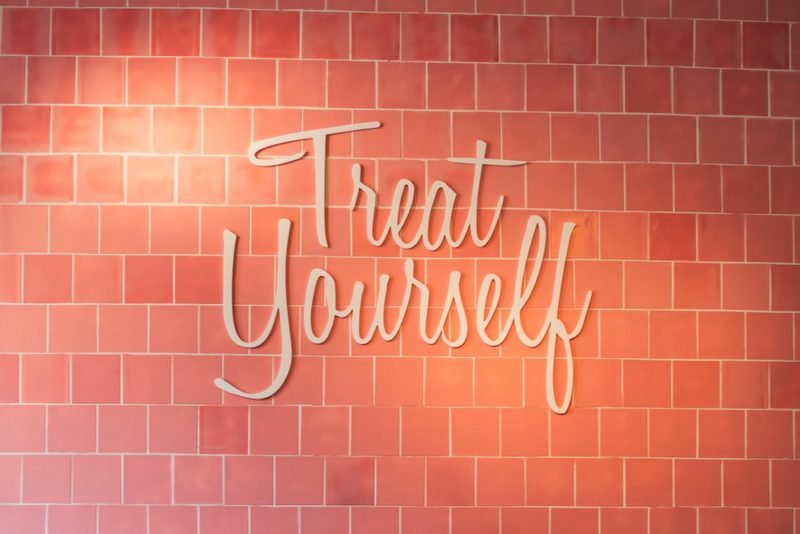
I’m not a fan of New Year’s resolutions. It’s rare that anything truly good comes of them, as they are a recipe for feelings of failure more often than they are a spark for sustainable habits that benefit physical and mental health.
That said, there just are certain times of the year that seem to present us with a metaphorical blank slate and cry out for some grand gesture. Spring is another such time (spring cleaning, anyone) as is back-to-school time in the fall (no matter how long it’s been since you’ve actually gone back to school, yourself).
This is why in recent years I’ve talked about setting New Year’s intentions rather than making resolutions. (In 2013 I kind of had it down, but I don’t know what the hell happened in 2015…those were resolutions masquerading as intentions! All I can say is, when you know better, do better, and I was clearly still evolving at that point. OK, I rallied a bit in 2016…whew!)
Anyway…I recently was listening to a webinar by registered dietitian and mediation teacher Jenna Hollenstein, who wrote the 2019 book “Eat To Love: A Mindful Guide to Transforming Your Relationship with Food Body and Life,” and I thought she made some excellent points. I want to share a few with you.

How wide is your path?
She said that a resolution is more of a lofty, black-and-white ideal, somewhat like a tightrope, and one false step, or one obstacle in your way, makes you fall off (i.e., break your resolution).
An intention, on the other hand, is like a broad path. You can’t fall off, and you have room to maneuver around any obstacles.
She gave an example of setting in intention around mindful eating (since this webinar was through The Center for Mindful Eating).
- First, set your intention, such as, “May I connect with my body in a way that allows me to sense what it is saying and respond to it the best I can.”
- Then, renew your intention each morning. Focus on what you can do today to support your intention, even if it’s simply small thoughts, words or actions.
- At the end of the day, review how things went, and notice what made it easier to honor your intention and what made it more difficult. Do this non-judgmentally, and with a sense of curiosity. So important!

Expansion, not contraction
Set New Year’s intentions that are about adding to your life, not subtracting from it. Or, expanding your life, not contracting it. Sometimes, this is simply in the framing.
For example, one of my New Year’s intentions is to continue to work towards minimalism (however that eventually feels best to me…this is very much a work in progress and I’m aiming for “good enough” not “perfect”). But I don’t see it as “having less stuff” or “removing stuff,” I view it as “creating space” and “cultivating a calm environment.” I’m also working on freeing myself from getting hung up on “sunk costs” for items I’m not even using anymore (for example, thinking, “I can’t get rid of this because I paid $X for it and I’ve only used it X times” is not an argument that serves me (or I daresay anyone) well. Letting go of these thoughts lets me think about more important things, which is adding to my life!
A few more examples:
- Instead of setting an intention to watch less TV, what about an intention to do more of something else you enjoy?
- Instead of setting an intention to eat out less, why not set an intention to cook more and try out some intriguing new recipes. You get the idea.
- Instead of setting an intention to go to bed earlier (which can feel like it’s taking something away from your evening), what about setting an intention to get enough sleep to feel rested so you gain energy? From there, you can decide what actions you will take to achieve that (and, yes, one action will likely be going to bed earlier!).
- Instead of setting an intention to be more physically active (which can also feel like it’s taking time away from other things you might like to be doing), what about setting an intention to build more strength, stamina, flexibility and balance (definitely a gain), and then deciding what actions will help get you there?
This post contains Amazon Affiliate links. As an Amazon Associate I earn from qualifying purchases.
Disclaimer: All information provided here is of a general nature and is furnished only for educational purposes. This information is not to be taken as medical or other health advice pertaining to an individual’s specific health or medical condition. You agree that the use of this information is at your own risk.
Hi, I’m Carrie Dennett, MPH, RDN, a weight-inclusive registered dietitian, nutrition therapist and body image counselor. I offer compassionate, individualized care for adults of all ages, shapes, sizes and genders who want to break free from eating disorders, disordered eating or chronic dieting. If you need to learn how to manage IBS symptoms with food, or improve your nutrition and lifestyle habits to help manage a current health concern or simply support your overall health and well-being, I help people with that, too.
Need 1-on-1 help for your nutrition, eating, or body image concerns? Schedule a free 20-minute Discovery Call to talk about how I can help you and explore if we’re a good fit! I’m in-network with Regence BCBS, FirstChoice Health and Providence Health Plan, and can bill Blue Cross and/or Blue Shield insurances in many states. If I don’t take your insurance, I can help you seek reimbursement on your own. To learn more, explore my insurance and services areas page.






